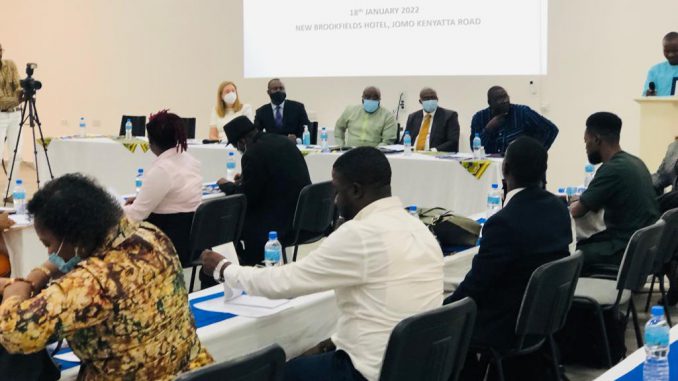
(Freetown, Tuesday, 18 January 2022)
The National Civil Registration Authority (NCRA) has held a one-day national meeting to validate the draft Data Protection Policy, Bill and Regulation at the New Brookfields Hotel, Jomo Kenyatta Road, Freetown.
The meeting was geared towards ensuring having a national document on Data Protection Policy in the country that is consultative and reflective of the views and various critical inputs of all stakeholders involved in the management of Civil Registration, Vital Statistics and Identity Management as well as its related issues in the country. Also, it is important to note that the validation process was not unconnected to the regional stakeholders’ consultative meetings undertaken by the NCRA and its partners in the last quarter of 2021, to elicit valuable contributions and views of participants from around the country on the draft documents.
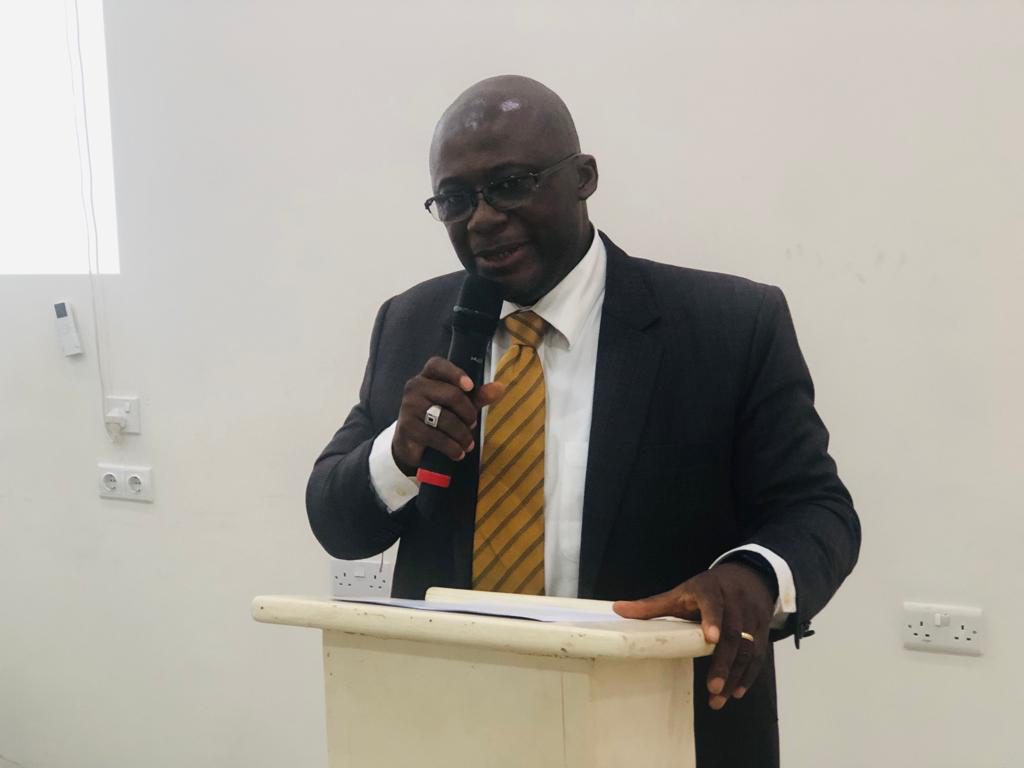
In his opening remarks, the Permanent Secretary of the Ministry of Information and Communications, Edward Kwame Yankson who served as the Chairman of the meeting said, the enactment of the Data Protection and Privacy Bill and the Cyber Security and Crime Act are part of President Bio’s Digital Transformation Road Map for Sierra Leone. This he said is anchored in the Ministry of Information and Communications. Mr. Yankson added that the move made by NCRA and its partners to develop the Data Protection Policy at its earliest convenience will serve as a safeguard for the already Cyber Security and Crime Act in the country.
The Chairman informed the meeting that, his Ministry was very much cognizant of the efforts NCRA has invested so far into the exercise and that the Ministry of Information and Communication will continue to support and collaborate with the NCRA in expediting the process of tabling the final draft document in Parliament for enactment. “It is a government policy and we are collaboratively working to have it enacted by Parliament,” he added.
Mr. Yankson stated that with the increase in user-generated data and the exponential industrial value of data, it is but crucial that there is a predictive Legislation and Government should put necessary measures in place to protect the data rights of its citizens.
The Chairman commended the leadership of NCRA for taking the lead to having such an important document that is of national essence. He expressed his delight that the document is a Sierra Leonean document and it should resonate with International and Sub- regional agreements and treaties. He however, advised the leadership of NCRA to avoid creating a separate Agency for Data Protection.
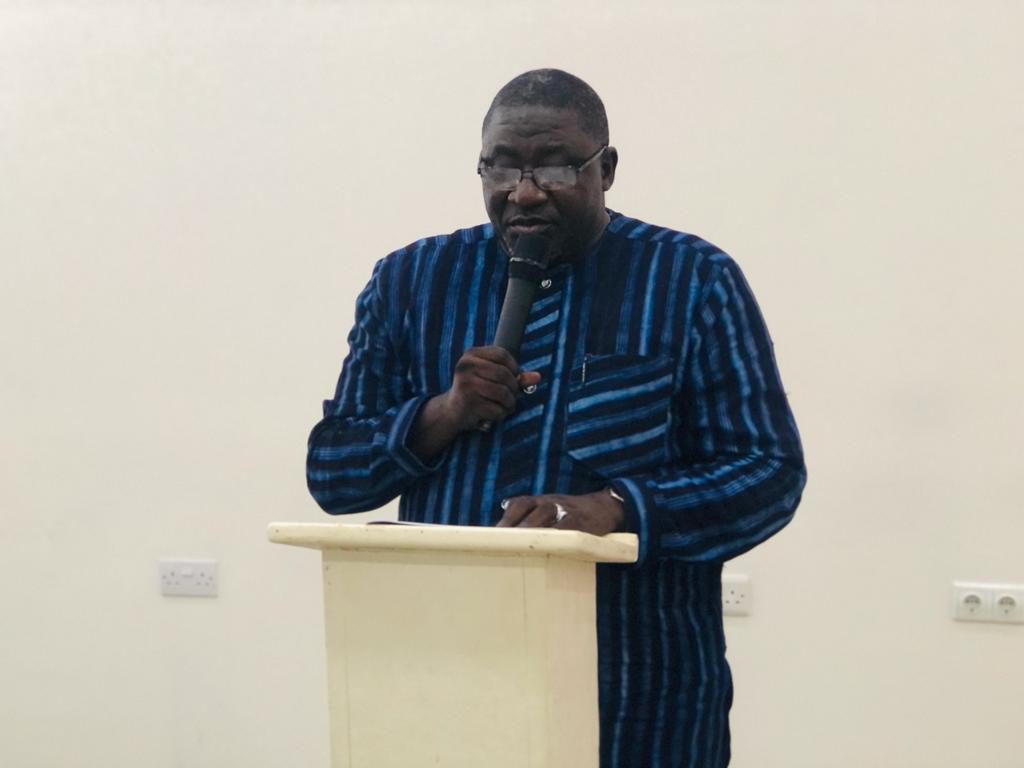
In his Address, the Director-General of National Civil Registration Authority (NCRA), Mohamed Mubashir MASSAQUOI said, the importance of the validation of any draft Legislation cannot be overemphasized as in October 2021, a total of 388 participants from 70 institutions across the country including MDAs, CSOs, Traditional Leaders and the Private Sector were fully consulted on the draft documents. This he said, was to elicit valuable professional contributions that could inform the final draft document before taking to parliament for enactment.
The DG maintained that, the consultations were conducted as a result of having an inclusive and well-informed Data Protection Law and to give Stakeholders the opportunity to share their opinions on the content of the draft documents that will impact on how data is collected, processed, stored, shared and used when the law is passed into effect. He added that valuable inputs and comments from key stakeholders were received and incorporated into the Validated Draft documents for onward presentation to parliament.
“While our professional Legal Team will present to us today valuable inputs from stakeholders that cultivated consensus on critical issues debated throughout the period of consultation, I am confident that by the end of this validation, this plenary will be in a position to proffer better advice to Government on the model to adopt in establishing and managing a Data Protection Law and structure in Sierra Leone, consistent with International best practice,” the DG said.
Mr. MASSAQUOI further mentioned that, the personal registration data which is provided by the Integrated National Civil Registration System is the primary source of authoritative information as against other information systems providing administrative services to the population.
Mr. MASSAQUOI also noted that, the Data Protection Law will set out the rights and obligations of individuals giving data to the NCRA and those collecting, processing, using and storing data. He went on to inform the meeting that, procedures will be set out to guide the NCRA and other institutions to collect data from individuals and the rights to consent before sharing their personal data or information for processing, transmitting etc., and set out standards to be maintained in the safekeeping of personal and sensitive data which will further increase the guard against the risk of identity theft since personal data are store in the system.
DG MASSAQUOI acknowledged the immense contribution and collaboration of the Ministry of Information and Communications, the Ministry of Internal Affairs, National Telecommunications Commission (NATCOM), Right to Access Information Commission, Directorate of Science, Technology and Innovation (DSTI), Bank of Sierra Leone and other MDAs who have actively participated in the Task Force and Working Group Sessions to produce the initial draft of the data protection documents. He also commended the role played by the UNDP and the Irish Aid who funded the drafting and consultation exercises to date.
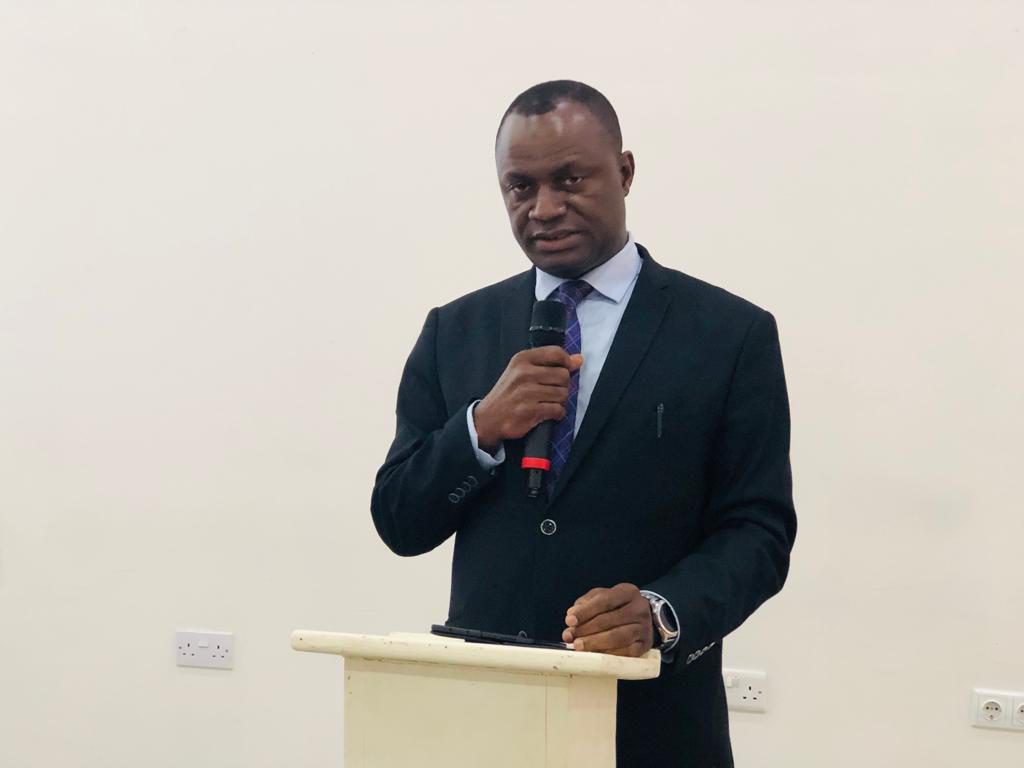
In his statement, Pa Lamin Beyai (PhD), UNDP Resident Representative to Sierra Leone, commended the collaborative work witnessed among government entities ranging from Ministries of Internal Affairs, Information and Communications, NCRA, and other entities based outside Freetown. He noted that indeed, consultations were deep and broad ranging to allow for various views to be represented in the products they are to validate today.
He furthered that the people of the world are increasingly living their lives in online space; much of which is rapidly changing and outside their control. He noted that in developing countries like Sierra Leone, opening ourselves to new technologies should be accompanied by a robust Data Protection Legal Framework.
“While we cannot afford to be left behind technologically, at the same time, we cannot be unguarded in terms of protection of information we provide.” The UNDP Country Representative noted.
He went on to stated that, UNDP and the Embassy of Ireland have been keen in ensuring that the instruments developed from the regional consultations leading up to the validation are taken into consideration. He encouraged all to think of data security for the people of Sierra Leone, including generations yet unborn, as they proffer legal provisions for the privacy and safety of data.
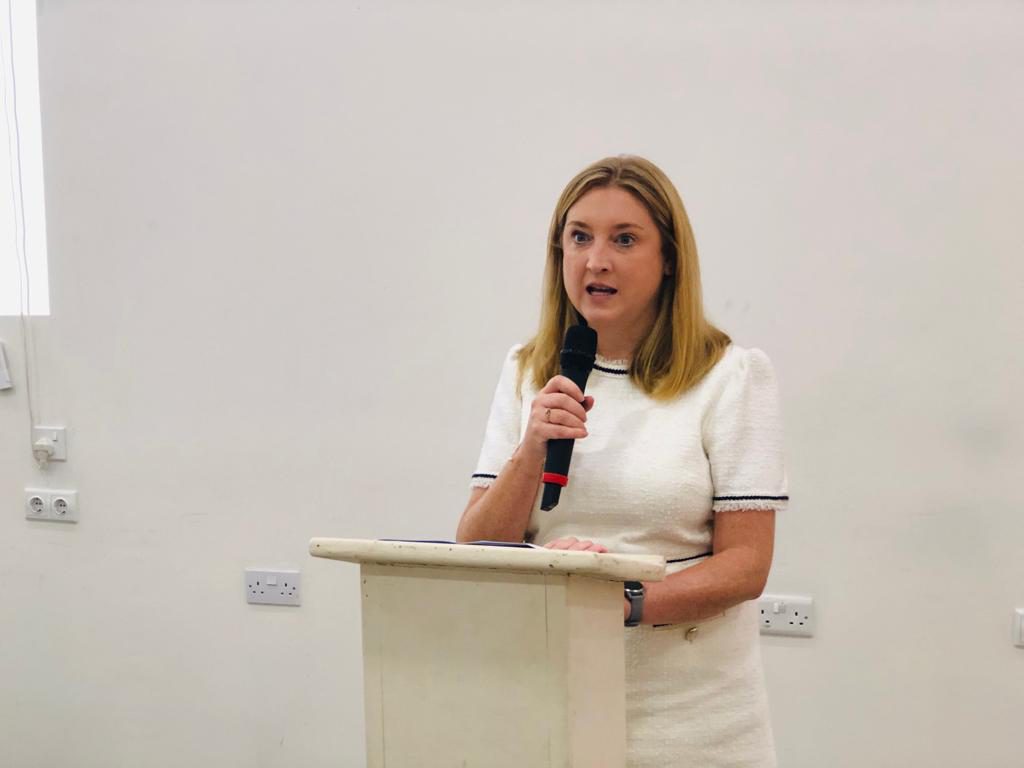
In her contribution, the Ireland Ambassador to Sierra Leone – Claire Buckley thanked the Government of Sierra Leone through NCRA for leading the consultations on the Data Protection Policy, Bill and Regulation across the country.
Ambassador Claire Buckley noted that Ireland was pleased that the Bill and Regulation they will be validating today have been developed with reference to International, Regional and Sub-regional instruments on data protection, especially the EU General Data Protection Regulations, the Malabo Convention, the ECOWAS Supplementary Act on Data Protection, among others.
The Ambassador went on to inform the meeting that in line with government’s commitment to establish data informed planning and an inclusive rural economy, Ireland recognized the importance of an Integrated Civil Registration and Vital Statistics System to development processes in the country. She added that Irish Aid also shared the belief and conviction that an effective and functioning CRVS system is important for measuring progress of the SDGs, particularly SDG 16.9 which seeks to ensure legal identity is provided for all.
In complimenting the efforts of other development partners especially the EU and the UNDP, Ambassador Claire Buckley stated that, their support to NCRA focuses on four main areas: Support the development, review and harmonization of laws relating to CRVS, enhance the interoperability of NCRA database with other institutions, support public awareness about CRVS, especially its link with voter registration, and support the capacity of NCRA staff to deliver efficient and effective CRVS services.
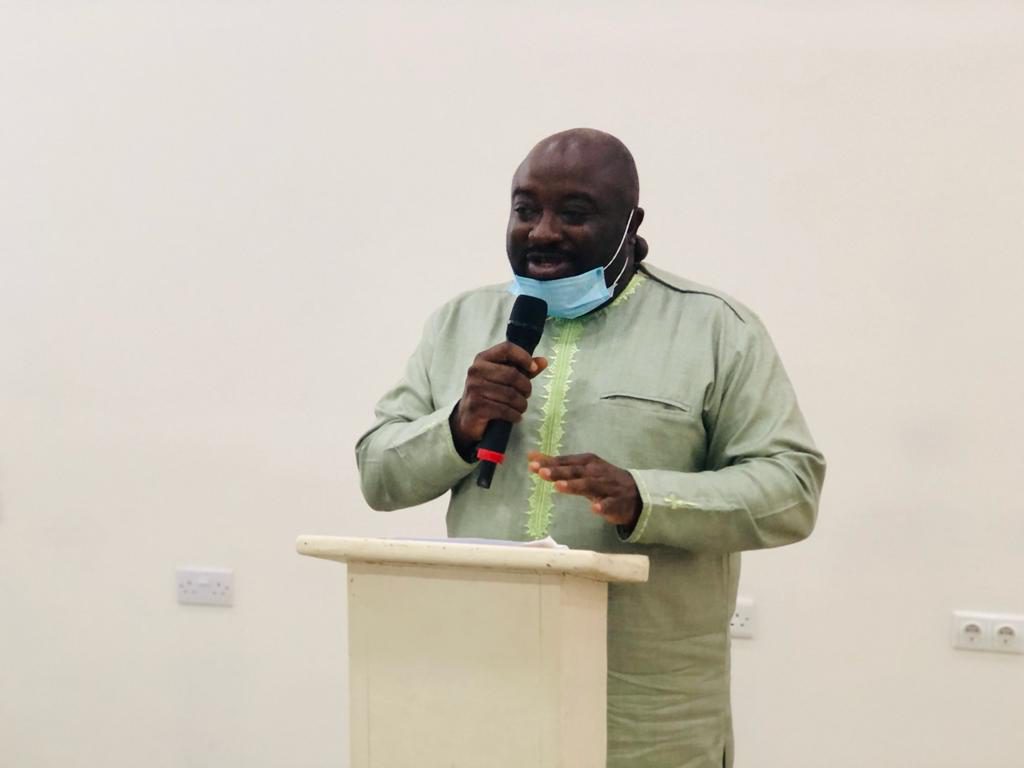
In the statement of the Minister of Internal Affairs, David Panda-Noah said, Data Protection Law does not only protect the individual but seeks to protect the fundamental human rights of the individual. He added that due to the sensitive use of data, it is important to note that data should be legally protected and secured.
The Honourable Minister went on to note that, the enactment of a Data Protection Law and Regulation would ensure the security of individual’s personal data and regulate the collection, usage, transfer and disclosure of the said data and will place accountability measures for organizations processing personal data.
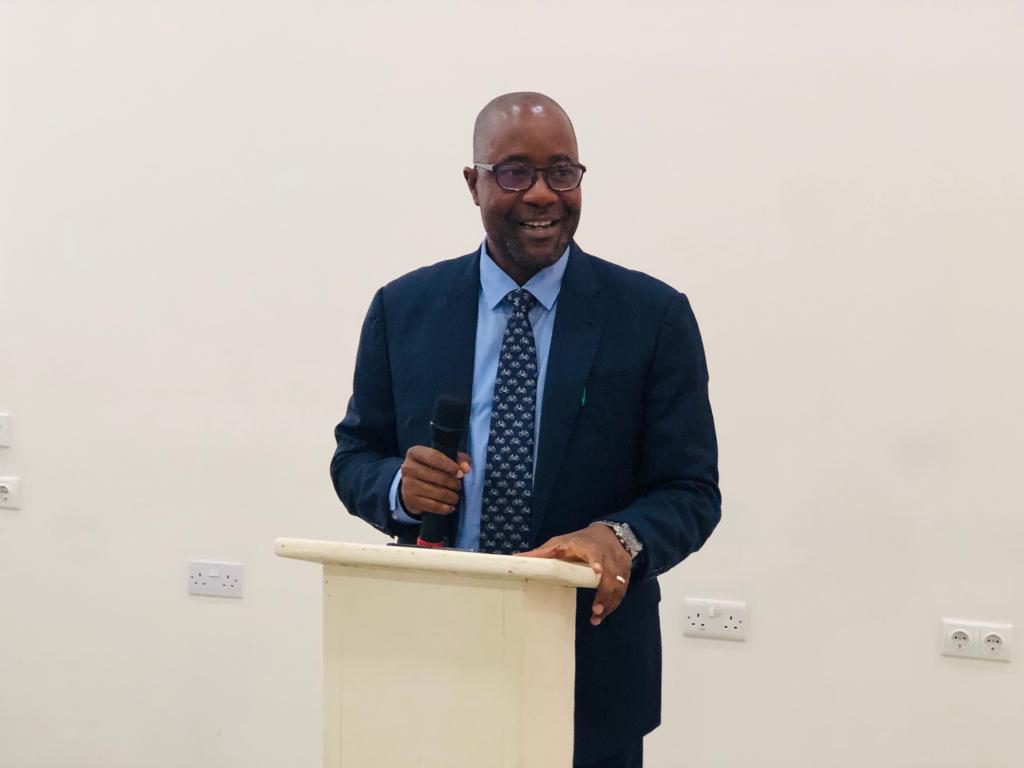
Picking from the Honourable Minister of Internal Affairs, the Minister of Information and Communications, Mohamed Rahman Swaray said, during the enactment of the Cyber Security and Crime Law, one of the key commitments he made in parliament was to work with the Ministry of Internal Affairs and NCRA to ensure the Data Protection Policy be taken to Parliament before long. He commended the Minister of Internal Affairs and the DG of NCRA for providing the leadership and the tenacity to bring such program from where it was to this point so far.
“It is very significant that we are here today in achievement of a critical milestone”, he said.
The Honourable Minister maintained that the enactment of such Bill will bring Sierra Leone in conformity with key provisions such as the Malabo Convention and other accords.
Mr. Swaray informed participants that President Bio is determined to bridge the digital divide as he wants to leave behind a digitally inclusive Sierra Leone, where every Sierra Leonean would be able to compete in the global digital space. He thanked development partners especially the UNDP and the Irish Aid for their unflinching support towards the entire process.
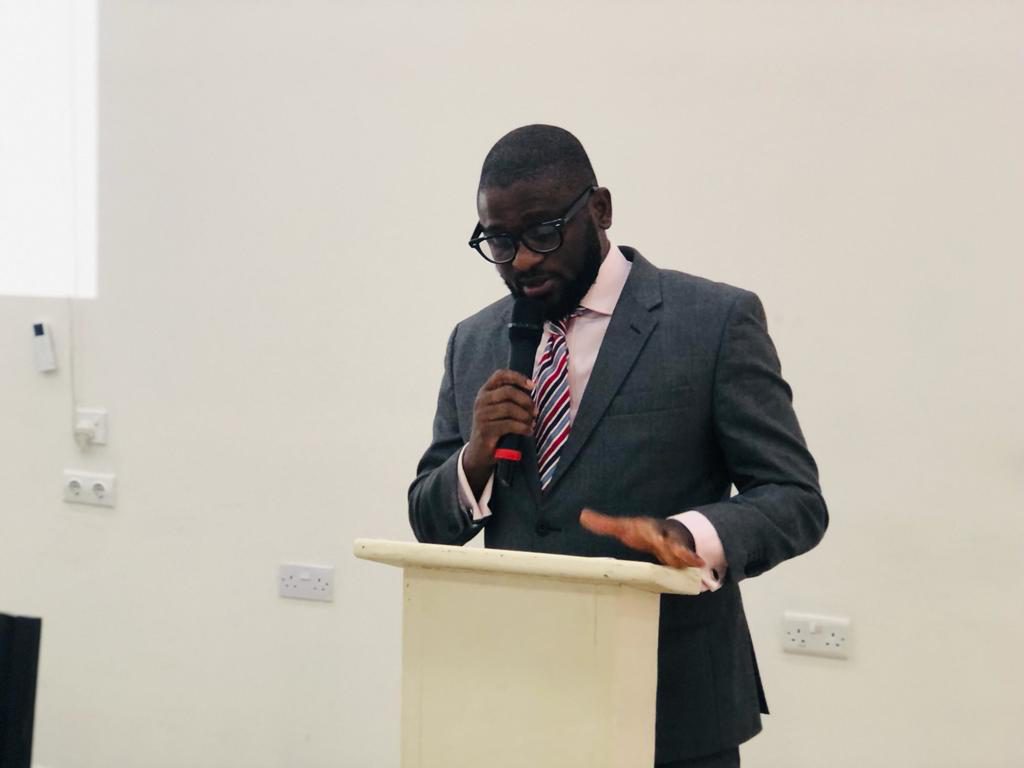
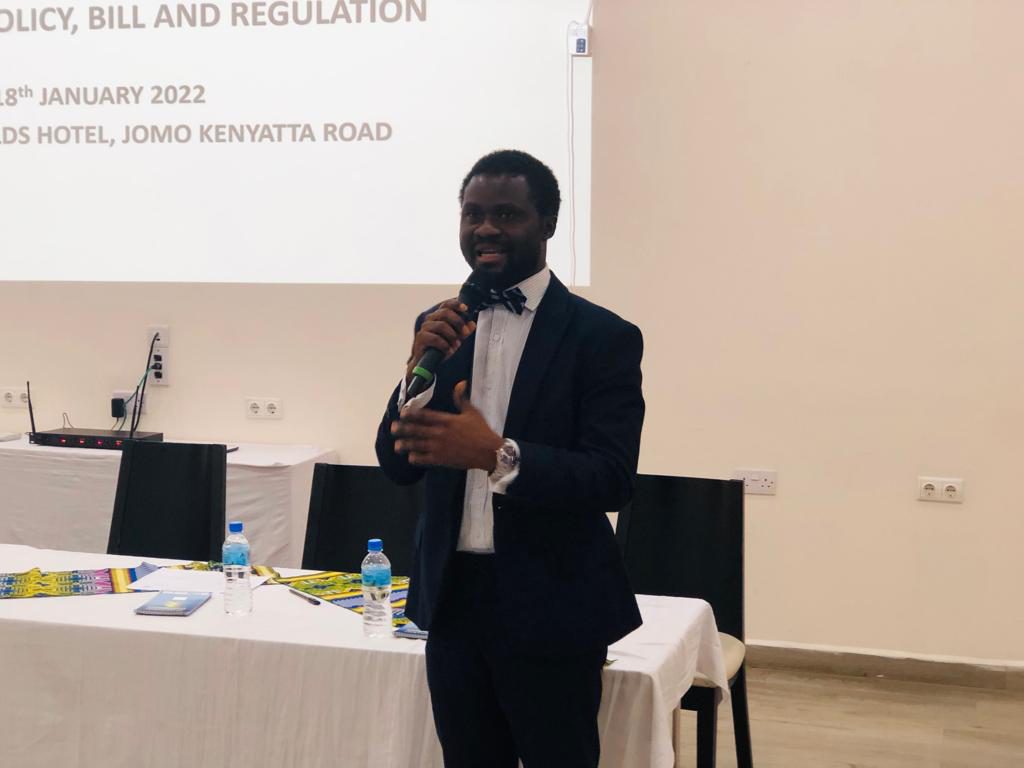
A PowerPoint presentation on the Data Protection Policy and Bill was done by a team of national legal consultants in the person of Emmanuel Saffa Abdulai Esq and Augustine S. Marrah Esq.
The meeting was climaxed by participants validating the draft documents after solidly listening to the merits and provisions proffered in the documents.
The whole process of the Data Protection Policy, Bill and Regulation consultations and Validation was facilitated by the Directorate of External Relations and Legal Affairs housed in the NCRA, headed by Madam Grace Harman.
Present at the meeting also were; Senior Management staff of the NCRA, Representatives of other Ministries, Departments and Agencies, Civil Society organizations and the media.
©IEC DIRECTORATE.
Leave a Reply